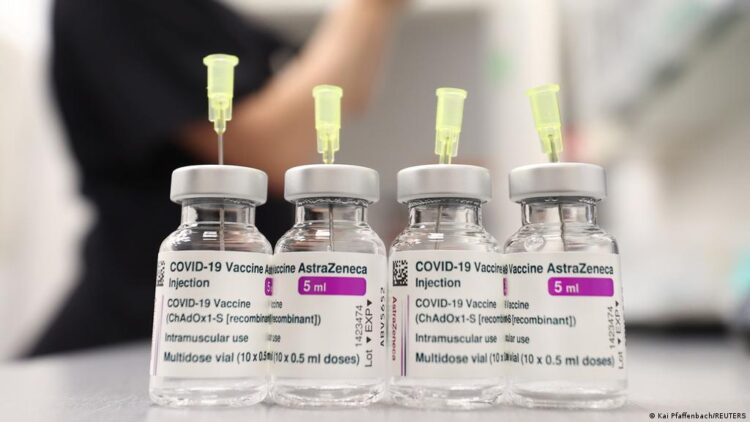By Victoria Mckeown-
Younger adults are particularly affected by the rare blood clotting disorder linked to the Oxford-AstraZeneca vaccine, the UK’s medicines regulator has said.
The Medicines and Healthcare products Regulatory Agency (MHRA) said there were 209 cases in the UK of the rare combination of blood clots with low platelet counts following being vaccinated the Oxford-AstraZeneca jab, with 41 deaths, up to April 21.
The new data, published by the MHRA for the first time on Thursday, revealed 23 cases in people aged 18 to 29, 27 in those in their thirties, 30 in people in their forties, 59 in people in their fifties and 57 in those aged 60 and above, with the age not known in the remaining cases.
The news does a disservice to the drive to speed up the roll out of the vaccine in the UK, though a large section of the population has already been vaccinated. Infection cases and death rates are dramatically down in the UK, and the official position is that there is no longer a pandemic.
However, the urge for caution remains, in the face of predictions of a third wave by the end of summer and towards the winter months later this year. The government is anxious for the British public not to undo the great progress achieved , which has been credited to both the lockdown and the vaccination roll out.
Mass vaccination offers continues down the age groups, and the government will not want scepticism to slow down the process,. Unfortunately, worrying news does not help this course.
Rare Blood Clots
Fresh statistics reveal that an estimated 25% of the rare blood clots were in people aged under 40, and two-thirds in those under 60, the data shows.
This is a relatively small proportion compared to those people who have been vaccinated.
The latest NHS England data showing that 5.5 million people under 45 had received a first dose by April 25 compared to 22.6 million of those 45 and over.
The MHRA said that the data suggested there is a higher incidence reported in the younger adult age groups and advised that this evidence should be taken into account when considering the use of the vaccine.
Chief executive Dr June Raine said that no medicine or vaccine was without risk, but said the blood clots were “extremely rare”.
She added: “The benefits of the vaccine continue to outweigh the risks for most people.
“It is still vitally important that people come forward for their vaccination when invited to do so.
“We ask anyone who suspects they have experienced a side effect linked with their COVID-19 vaccine to report it to the Coronavirus Yellow Card website.”
The MHRA said the estimated number of first doses of Covid-19 Vaccine AstraZeneca administered in the UK by April 21 was 22 million giving an overall case incidence of 9.3 per million doses. Raising that figure to at least 30 million-half of the UK’s population, was up until now a realistic target, but how the yet to be vaccinated young British public react to the news is still to be seen.

